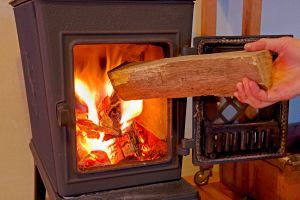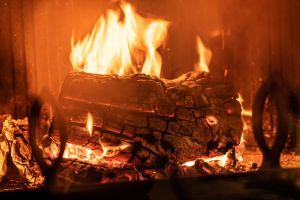Scotland stove ban deals blow to the fireplace sector, the new law prohibits solid fuel heating in new homes brought in without proper consultation.
Read our article “Everything you need to know about new log burner laws in Scotland” here.
The fireplace sector has been dealt a blow after it emerged a ban on solid fuel stoves in new homes had effectively been implemented in Scotland last week. Legislation enacting new building regulations became active at the start of the month but it was no April fool’s joke.

They now require architects and builders to only specify zero emission heating systems in any new build properties – effectively banning any kind of stove. Homeowners are allowed to later install a stove for emergency heating if zero emission heating systems fail. Existing properties are not affected.
The solid fuel and fire place sector has claimed it was not properly consulted and the new laws have been sneaked in. But the Scottish Government claimed it did a full consultation in 2021.
The Stove Industry Association told Fireplace Specialist Magazine it had no record of being consulted on the Scotland stove ban and had not given any feedback on the new law.
Commenting on the New Build Heat Standard for Scotland, Andy Hill, chair of the Stove Industry Association, said: “We fully understand why residents of Scotland, particularly those in off-grid areas of the country, are deeply troubled by this new legislation. “In a country where there is a plentiful supply of local, sustainable wood fuel we question why the option to install a highly efficient, complementary, and low carbon heat source has been removed, especially when the aim of the legislation is to reduce carbon emissions from domestic heating.

“It is hugely detrimental to the local economy, consumer choice and carbon reduction targets to restrict the use of wood burning stoves in new build properties.
“Wood has the lowest carbon emissions factor of any domestic heating fuel, and modern stove appliances operate highly efficiently and with minimal emissions (up to 90% reduction in emissions compared to an open fire).
“Heat pump heating systems offer enormous benefits in our quest for net zero, but they are not a panacea. Their shortfalls are well documented; they are expensive to fit, operate at a steady state meaning that they often require top up heating sources, put increased strain on an already stretched energy grid and they will not work when there is a power cut.
These shortfalls can all be mitigated by pairing a heat pump with a modern wood stove. We simply cannot afford – economically or socially – to overlook the importance of grid independent, wood burning secondary heating.”
The Guild of Master Chimney Sweeps Director for Scotland, John Stone, said the change had been ‘quietly brought in’. He claimed ’no one’ in the solid fuel industry had been consulted. He said the move was part of the plan to ‘drive Scotland to net Zero at any cost’.
“We have a major concern over this whole issue, as there was absolutely no consultation from anyone in the solid fuel industry.
“80 organisations were asked to be involved, but not one was directly involved in solid fuel and alternative heating, including biomass, which has been long accepted as Carbon neutral, including by the UK Westminster Government, who coincidentally have removed the DRAX power station from its carbon emissions calculations as they deemed it as Carbon Neutral!

“We are very concerned that decisions are being made which will have huge effects on those who already struggle to pay heating bills and may find that in the very near future they will be TOLD you now have to use electricity heating or suffer huge fines as LEZ become Air Control Areas which will undoubtedly spread through the urban areas. With ever tighter controls.
“Those in more rural areas who already suffer higher costs for infrastructure and access, are now being told they will not be able to have a guaranteed heating option and will only be able to rely on electricity if investing in building a new home. “
A Scottish Government spokesperson said: “Heating our homes and buildings represents about a fifth of Scotland’s carbon emissions so tackling the climate emergency requires us to address these emissions.
“Proposals in the New Build Heat Standard, which came into force from 1 April 2024, were widely consulted on in 2021 and again in 2022. Both consultations showed strong support for the new Standard. The changes mean that new homes and buildings do not contribute to climate emissions, by banning the use of polluting heating systems such as oil and gas boilers, and bioenergy – including wood-burning stoves.”
For more reaction read our full report in the next edition of Fireplace Specialist magazine.
Subscribe to the magazine today for free and never miss an update.
